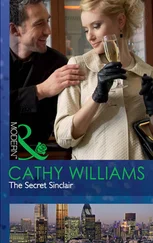Having never had a lover before, Violet presumed this was natural, that Walter’s need for frequent copulation—for copulation in quantity and variety and sometimes bruising intensity, for copulation at an instant’s notice—demonstrated the flattering largeness of his regard for her. When, in the middle of the afternoon, he locked the laboratory door and lifted her skirts and tailed her over a workbench, Violet felt powerful, irresistible, so uniquely and magnificently alluring that even the great Dr. Walter Grant could not rein in his animal desire for her. In his ownership of her flesh, she felt her ownership of his massive masculine will. Of, in consequence, his heart.
In April, as the watery English sun ducked around fistfuls of showers, Violet helped Walter put the finishing touches on a paper he was delivering at a conference in Brussels. The task nearly defeated her. His handwriting was impossible, his spelling atrocious, his equations riddled with the careless errors—positives and negatives unceremoniously reversed, variables switched without explanation, basic arithmetic ignored—of a man accustomed to larger thoughts. As a reward for her diligence, he included her among the small group of Devonshire fellows making the journey across the channel.
He treated her with impeccable professional indifference during the day, as any other colleague. No one could possibly have suspected that the serious and dowdily dressed Miss Schuyler crept to Dr. Grant’s nearby suite once the hotel hallways were clear at night, that he stripped away her dowdy clothes and her professional indifference and instructed her in the finer points of fellatio as he sat on the edge of the bed and scribbled notes on the text of his prepared remarks.
The result of all this hard work was a resounding triumph. Walter delivered his paper with great verve to an enthusiastic reception. Violet sat at his feet, incandescent with pride as she watched him speak, in full command of the stage, displaying the array of equations and drawings she had prepared so carefully for him. At the dinner afterward, he had been deluged with company, and Violet had stolen off directly after dessert to wait for the coast to clear, to slip into his suite and congratulate him more privately, when all his well-wishers had left and there was only the two of them, Walter and Violet.
Around eleven o’clock, the footsteps and voices began to die down outside her door, and Violet gathered her anticipation about her and left the room.
But when she turned the lock and ducked through Walter’s door, she saw no sign of him.
Well, it was hardly surprising, after such a victory. No doubt he had been delayed in cordial argument with some officious rival and would be up shortly. Tomorrow morning she and Walter were leaving for a week’s holiday, in some discreet Alpine resort of which Violet had never heard. He would want to say good-bye to his scientific friends, to perhaps share a last drink. She took off her clothes and hung them in the wardrobe and readied herself for the night.
But the minutes had ticked by, and still Violet waited in Walter’s bed, counting the repeats in the floral wallpaper by the streak of brown light from the crack in the curtains, dozing off only to jolt back awake, until the door had at last squeaked open at three o’clock in the morning. She pretended to be sleeping. Walter went to the bathroom and opened the tap in the tub, and after he had bathed and brushed his teeth, he slipped into the sheets beside her.
“Are you awake, child?” he asked gently.
She didn’t reply, but when morning arrived, and after Walter’s reassuring body had found hers in the early spring sunshine, she bent her forehead into his damp shoulder and told him that despite the diligent applications of vinegar each time they were together, she thought she might be pregnant.
Monday morning! Now, I don’t know about you, but I’ve always relished the idea of a new week, and never more than when it contained the prospect of a Doctor Paul ringing my doorbell right smack at the beginning.
But first. Work. And even work had its charms today! I whistled my way up the Lexington Avenue subway and sang my way through the brass-framed revolving doors into the musty lobby of the Metropolitan building on Forty-ninth Street. My great-aunt Violet lurked somewhere in the holy sanctity of the archives here. I was sure of it! And I would find her!
“Good morning, Agatha!” I trilled to the receptionist, the instant the elevator doors staggered open on the eleventh floor.
“Miss Schuyler,” she said, in that charming voice of hers, somewhere between a rasp and a mutter. She didn’t so much as raise her shellacked gray head from her magazine, which, by the way, was not the Metropolitan , not even close, unless you took a big black permanent marker and scrawled Metro over the Cosmo . She took a long draw of her cigarette and—again, without looking, the modern miracle of her!—tipped it into the ashtray just before a long crumb tumbled from the end.
And this was the storied magazine’s face to visitors.
The switchboard rang as I swished past the desk. “ Metropolitan !” Agatha snapped, like an accusation of manslaughter.
But don’t you worry. Things got better as I went along, past the industrious typing pool (to which, thank God and Gogo, I had leapfrogged membership), past secretaries with scarlet nails and towering nests of hair, past secretaries with bitten nails and limp heads of hair, past office doors and distracted editors and clench-jawed columnists pecking wit at typewriters, until I reached my own humble corner and humbler desk, of which the only redeeming features were its convenient proximity to the office of Edmund Tibbs, managing editor, and its exclusion from the incessant clacking of the typing pool.
I dropped my pocketbook into the bottom desk drawer and headed to the kitchenette.
Tibby hadn’t been kidding around about sugar, no cream. He liked a single teaspoon of the white stuff, not a grain more, and it had better be hot and it had better be brimming, and if so much as a precious drop spilled over the edge and into the saucer below, I would make it up in my own crimson blood: with sugar, no cream.
Still, regardless of that anomaly before heading into Doctor Paul’s bedroom Saturday night, I was not of the trembly-handy tribe, and this Monday morning, as every morning, I delivered Tibby his medicine intact and stood before his desk, smiling my best smile, curving my best hip, even though I knew for a fact that Tibby liked his coffee black and sweet and his chromosomes strictly XY.
He winced at the first sip, but he always did.
“Good morning, Mr. Tibbs,” I said.
“Miss Schuyler.”
“Is there anything I can do for you this morning? Any facts to check?”
If looks could growl. “Check your desk.”
“Right away, Mr. Tibbs.”
I turned heel smartly and checked said desk, where two new articles had found their way into the wire tray that controlled my fact-checking inflow. Yes, I was a fact-checker. That was my official duty, anyway; Tibby’s coffee was for free and for the understanding that a year or two of perfectly delivered joe might lead to bigger and better things.
Not that fact-checking constituted a minor patch of sand on the sunny Metropolitan beach. No no no. Our writers were brilliant wordsmiths, elegant stylists, provocative storytellers, but they rarely let an inconvenient fact get in the way of a good exposez-vous . My job was to check these baser impulses—note the double meaning—and level the Metropolitan ’s chances of a messy libel lawsuit from an embarrassed husband, a shamed politician, a misbehaving starlet.
Читать дальше












